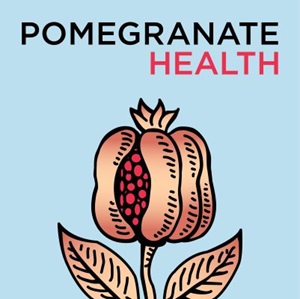Pomegranate Health
A podcast about the culture of medicine.

You'll hear clinicians, researchers and advocates discuss all aspects of professionalism and quality improvement in healthcare. This includes clinical ethics, diagnostic bias, better communication and more equitable systems.
For a sampler of these diverse themes of professional practice take a listen to Episode 132 and Episode 125.
If RACP is your CPD home, you can log time spent listening to each episode with the "Add activity to MyCPD" button. And if you're a Basic Physician Trainee, the [Case Report] series might help you prepare for your long case clinical exams.
This is also the home of [IMJ On-Air], featuring authors from the Internal Medicine Journal sharing their latest research. Meanwhile, the [Journal Club] episodes give RACP members a place to talk through their research published in other academic journals.
Feel free to leave feedback in the comments section for each episode or send it to us via email at podcast@racp.edu.au.
Latest episodes
Ep93: The rise and fall of mpox
In 2022 a sexually transmitted form of mpox virus made its way around the developed world but it had long been endemic in African countries. In this podcast we talk about the conditions that allowed new strains to evolve and the rapid community health response that reigned the global outbreak in.
Ep92: Data-driven practice improvement
The field known as Practice Analytics seeks to provide clinicians with a bird’s eye view of their case load and performance. This can draw attention to cases that stood out from the trend and help reflection and practice improvement.
[IMJ On-Air] Hyperglycaemia and COVID-19
In the first year of the COVID-19 pandemic, international studies showed that pre-existing diabetes conferred a significant mortality risk. Researchers have retrospectively examined electronic medical records in two Melbourne health services to find no such association.
[Guest Lecture] What we know about long COVID
ADAPT is a prospective cohort study that has been following up COVID-19 patients on various different outcome measures. This has allowed researchers to identify potential physiological and immunological signals that distinguish people who experience long COVID.
[IMJ On-Air] Making sense of HACs
Hospital-acquired complications are assumed to be preventable and to provide some metric of quality of care. But HACs may be more strongly associated with patient-related factors than they are with deviation from best practice.
[IMJ On-Air] Managing cannabinoid use in palliative care
Patients in palliative care settings may be more inclined than most to complementary and alternative medicines, including cannabinoid products. But they are also more vulnerable to side effects given impairments to their drug metabolism and clearance mechanisms.
[IMJ On-Air] Recent advances in asthma management
This is the first episode of a new format featuring authors and editors of the Internal Medicine Journal. In this episode we have leading respiratory physicians from the Royal Melbourne Hospital presenting current best practice in the diagnosis and treatment of severe asthma.
Ep85: The ASD Odyssey- a reply
Despite guideline recommendations for assessment and diagnosis of Autism Spectrum Disorders there are drivers in the health system that dissuade clinicians from implementing these. These include reimbursement and training in the area of developmental disorders.
Ep84: The ASD Odyssey
Autism spectrum disorder is often diagnosed late in Australia due to gaps in developmental surveillance and long waitlists for diagnostic evaluations. This podcast discusses a national guideline intended to streamline this process.